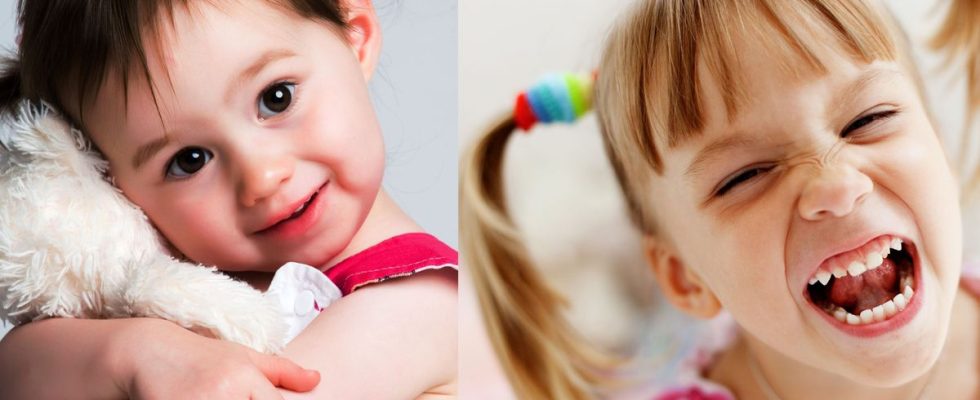They are multiplying on TikTok. The videos “first child vs second child” (first child against second child) feature the eldest and his little brother or his little sister. While the first-borns are playing the piano, painting, ironing their skirts and shirts and having a big smile, the second-borns are running around, screaming, trying improbable things, have mashed potatoes in their hair and felt on their cheeks. The postulate: the eldest would be wise and reasoned and the youngest, a real little demon.
Because this belief is widespread (and has generated debate within the editorial staff), 20 minutes wanted to know more. Are the latter really fanatics without faith or law? And more generally, does the place occupied in the siblings have an impact on our character?
A responsible elder and a second wanting to get attention
A study * on this subject has made a lot of noise. Conducted in 2015 by the YouGov polling institute among 1,782 British adults on the vision they have of themselves and their brothers and sisters, it shows that older people see themselves or are perceived as responsible and organized while the youngest are considered funny and relaxed.
For Nina Bataille, professional coach and author of Brothers and sisters, from rivalry to complicity **, this statement about the temperament of the firstborn seems logical. “Even if we have to be careful because the human being is complex, we notice that the eldest is often the child with whom the parents are the most stressed because they have no experience. They’re afraid he won’t be able to walk, potty train, read. They therefore put more pressure on him than on the following ones, which means that the first of the siblings will be more authoritarian, leaders, rigid. »
Conversely, for her, the second would be more flexible, accustomed to being woken up from his nap to pick up the first at school, for example. “The youngest has more adaptability, but also feels the need to be unique because the eldest has already done everything and the parents are less amazed at the progress of the second. This gives children needing to stand out, to attract attention, by doing good or nonsense. The solution, according to her: give time alone to the cadet and highlight what is special about him.
“It’s bullshit”
Bernard Golse, child psychiatrist, psychoanalyst and professor at Paris Cité University, does not believe in these theories. He recognizes all the same that “the eldest is the one to whom the parents have the greatest debt, because it is the one who allowed them to become parents. “According to him, the latter” risk being very, even too attentive and demanding “, before relativizing: “but, these differences remain minute. »
In 2015, researchers from the University of Leipzig analyzed data from three national studies on the subject. One of them was to pass an IQ test to 20,000 people. The study, published in the journal Proceedings of the National Academy of Sciences of the United States of America (PNAS), concludes that the elders have a higher intelligence quotient than their little brothers and sisters and that this IQ would decrease by 1.5 points between each new child. “Bullshit”, slice the child psychiatrist. Conversely, Nina Bataille finds the findings of the study “logical”. “Parents have further pushed the eldest, who received exclusive attention. But intelligence quotient is not emotional quotient. »
“It is the investment of the parents which is above all decisive. »
For the child psychiatrist, “it is the investment of the parents which is above all decisive. » An opinion shared by Nina Bataille. “These are only small trends that have been observed, but certainly not absolute truths, all the more so when accidents of life such as a divorce or the death of a child occur and reshuffle the cards. According to the coach, the goal is above all to “make parents more aware and therefore able to pay attention to the education they give”.
Because, according to her, these behavioral differences will diminish if the parents are very attentive to each child and do not create rivalry between them. And Bernard Golse concludes: “In a sibling, there is no ideal place. »

